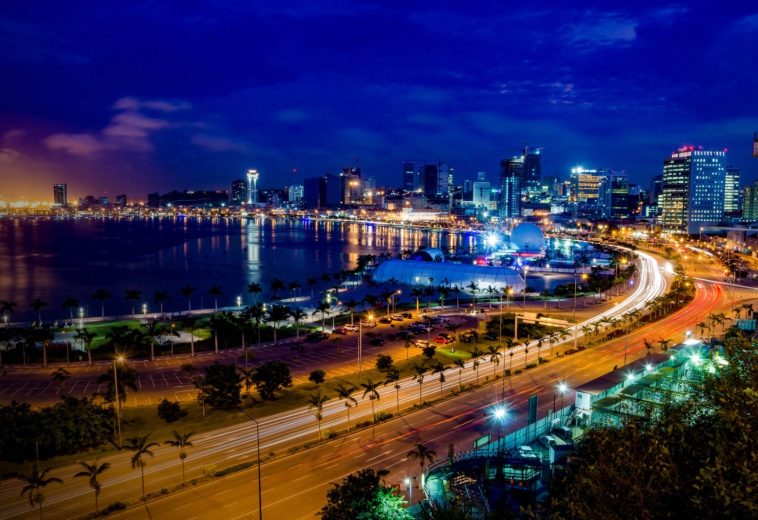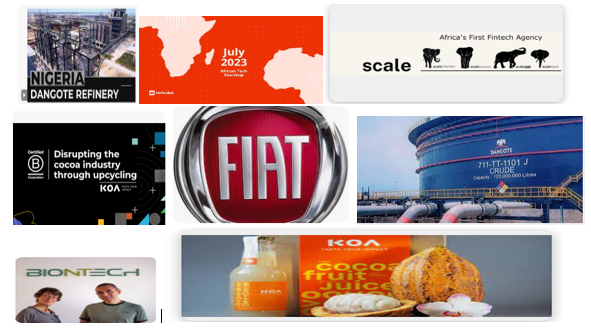Africa has emerged as a hub for innovation in the rapidly evolving field of technological advancement in 2023. The digital revolution that is taking place on the continent has the potential to drastically change its course. Examining the year’s most notable technical developments reveals that Africa is not only catching up with the rest of the world with regard to technology but also forging ahead with innovative products and services that cater to the particular needs of the continent. This article examines how technology is transforming Africa’s and expands on the resounding technological advancements that have an effect on the continent.
Artificial Intelligence (AI)
With the growing field of artificial intelligence (AI), Africa is experiencing a technological revolution in 2023. Artificial intelligence (AI) is proven to be a potent force for good, despite persistent issues like poor internet access. The transformative impact of AI is seen in the many different fields it’s being used in. These include health, agriculture, creative creation, and regional tech enterprises, among others.
Revolutionising Healthcare
Projects in Sierra Leone provide evidence of how artificial intelligence (AI) can be used to improve accessibility, digitise healthcare systems, and solve problems in remote areas. One’s dedication to leveraging technology innovation to overcome barriers in healthcare is evident through partnerships with groups like World Vision Sierra Leone. Also, Ghana automates radiography with deep learning, and Kenya supports e-health businesses. In addition, Egypt uses AI for tele-nursing and triage, and South Africa uses AI to assess health worker retention.
Innovative Education
To address the issue of low early education performance in Mali, Robots Mali uses language processing to produce educational content in regional dialects. This project is an example of how artificial intelligence (AI) might enhance learning results by customising content to the language and cultural background of students.
Agricultural Transformation
The effects of climate change on Africa’s agriculture have led to changes in the region’s sources of revenue. Notwithstanding its difficulties, artificial intelligence (AI) holds the potential to completely change the agricultural industry by solving problems brought on by climate change and making subsistence farming a more profitable and sustainable endeavour. For African farmers, AI helps with crop disease diagnosis and climate change mitigation.
Art and creativity
AI is being used more and more by African artists to create imagery from samples or written descriptions. Archaic systems could become proactive and nimble due to these advancements.
Internet of Things (IoT)
Africa is using technology for sustainable development, as seen by the growing use of IoT in healthcare and agriculture and the rise of smart cities. These programmes not only increase effectiveness but also improve residents’ general well-being. To sum up, the emergence of smart cities on the continent shows a proactive commitment to addressing the changing demands of its expanding urban population, even as it tackles the issues posed by urbanisation.
IoT is vital to building more efficient, scalable, cost-effective, and sustainable services and businesses in Africa as the continent expands. Hence, by offering businesses the newest technologies and standards in data communication, Caburn Telecom advances the Internet of Things on a worldwide scale with its innovative solutions.
Healthcare
Through the creation of links between medical devices, healthcare professionals, and patients, IoT is transforming delivery in the healthcare industry. This connection makes it possible to track the effectiveness of medical devices, monitor vital signs remotely, and make prompt interventions.
Also, access to patient data in real time speeds up medical procedures and increases diagnosis accuracy. In addition to granting equal access to high-quality care, the IoT also plays a critical role in closing the healthcare gap between rural and urban areas. Furthermore, by automating and streamlining administrative procedures, these innovations help to cut costs.
Smart cities
Initiatives in Kenya and South Africa serve as prime examples of how the idea of smart cities is spreading throughout Africa. These programmes include the construction of modern infrastructure, effective transportation networks, and the incorporation of renewable energy sources. The goal of using smart technologies is to improve urban areas’ overall quality of life. Examples of these technologies include intelligent traffic management and smart street lighting.
Kenya’s Waste Management Systems
By monitoring bin fill levels using sensor-based systems, IoT is successfully controlling waste in Kenya. Waste management firms can effectively collect and dispose of extra waste by receiving alerts from this data, which is delivered using IoT SIM cards. The implementation, which has been shown to save expenses by as much as 40%, provides an economical and ecologically responsible waste management solution.
Tanzania’s Battle Against Oil Theft
Tanzania uses IoT-enabled applications and RFID technologies to combat oil theft in fleets. Usangu Logistics tracks every truck in real time to stop oil theft by using RFID-enabled tags and an Internet of Things-enabled gateway device. By recording every effort to open the hatch, this programme helps identify thieves right away and drastically lowers the likelihood of theft.
Egypt’s Appliance Control
Integreight has created an Internet of Things chip named 1sheeld in Egypt that enables customers to remotely operate domestic appliances through cell phones. With the help of this chip, users may monitor electricity use, create timers, and turn appliances on and off at certain periods to improve energy efficiency. Additionally, Egypt is looking into additional IoT-based ideas, such as beekeeping and precision potato farming.
METAVERS
The continent of Africa is progressively adopting the metaverse in 2023, which represents a notable change in its digital trajectory. Although adoption rates differ, some nations are leading the way, exhibiting a proactive approach to incorporating Metaverse technologies into various sectors of their digital economies. The metaverse is not just a technological phenomenon; it is strategically placing African nations at the forefront of the Fourth Industrial Revolution by utilising innovations such as blockchain and artificial intelligence.
In order to improve their digital and social economies, African countries such as Nigeria, South Africa, and Egypt smartly embrace the metaverse. These nations demonstrate how the metaverse has the ability to propel Africa’s digital development as trailblazers in the adoption of various VR applications. These countries are at the forefront of an impending technology revolution, doing everything from developing digital ownership and encouraging NFT artists to building virtual cities and utilising the metaverse for teaching.
To sum up, Africa benefits from the Metaverse’s practical solutions for economic growth, education, and building a sense of digital community, which go beyond entertainment. Africa’s web3 community is steadily growing, despite current obstacles, and these countries’ good activities position the region as a major actor in the global metaverse narrative.
Nigeria
Nigeria establishes itself as a frontrunner in the adoption of the metaverse and leads the web3 community in Africa. Nigeria has explored the use of virtual reality (VR) to further its booming NFT (non-fungible token) artists, having been recognised by Meta, formerly Facebook, for its significant contributions to the digital economy.
South Africa
South Africa is taking the lead in embracing and supporting metaverse technologies. According to SA Social Media, 16% of South Africa’s adult population uses VR apps, making it one of the most active African nations in the metaverse. The country’s dedication to the transformative potential of VR in its digital economy is further demonstrated by the launch of Africarare, South Africa’s first comprehensive VR application designed for the continent’s Web3 community.
Africarare has established significant collaborations with companies such as MTN and M&C Saatchi Abel in order to market its 3D virtual reality experience, which is based in Ubuntuland. South Africa hopes that widespread adoption of the metaverse will have a positive effect on its digital economy, with a focus on the convergence of blockchain and NFTs to assure real digital ownership.
Egypt
Egypt welcomes the metaverse with open arms, despite being cautious in some web3 communities, including Bitcoin. As part of the Tutera project, Egypt launches Metatut, its first virtual city in the Metaverse. This virtual city represents a vast world of opportunities for digital developers, as it showcases the majesty of Ancient Egypt during the reign of King Tutankhamun. Egypt lists a number of classes and workshops in the metaverse, utilising it as a teaching tool as well. The Ministry of Local Development intends to introduce courses on metaverse applications, artificial intelligence, and virtual reality in order to improve capacities through education.
Africa isn’t just keeping up; it’s shaping a distinct digital narrative, promising an exciting tech future. This is evident in 2023 as Africa emerges as a tech innovator, embracing AI, IoT, and the metaverse. In various African countries, technology continually transforms sectors.


